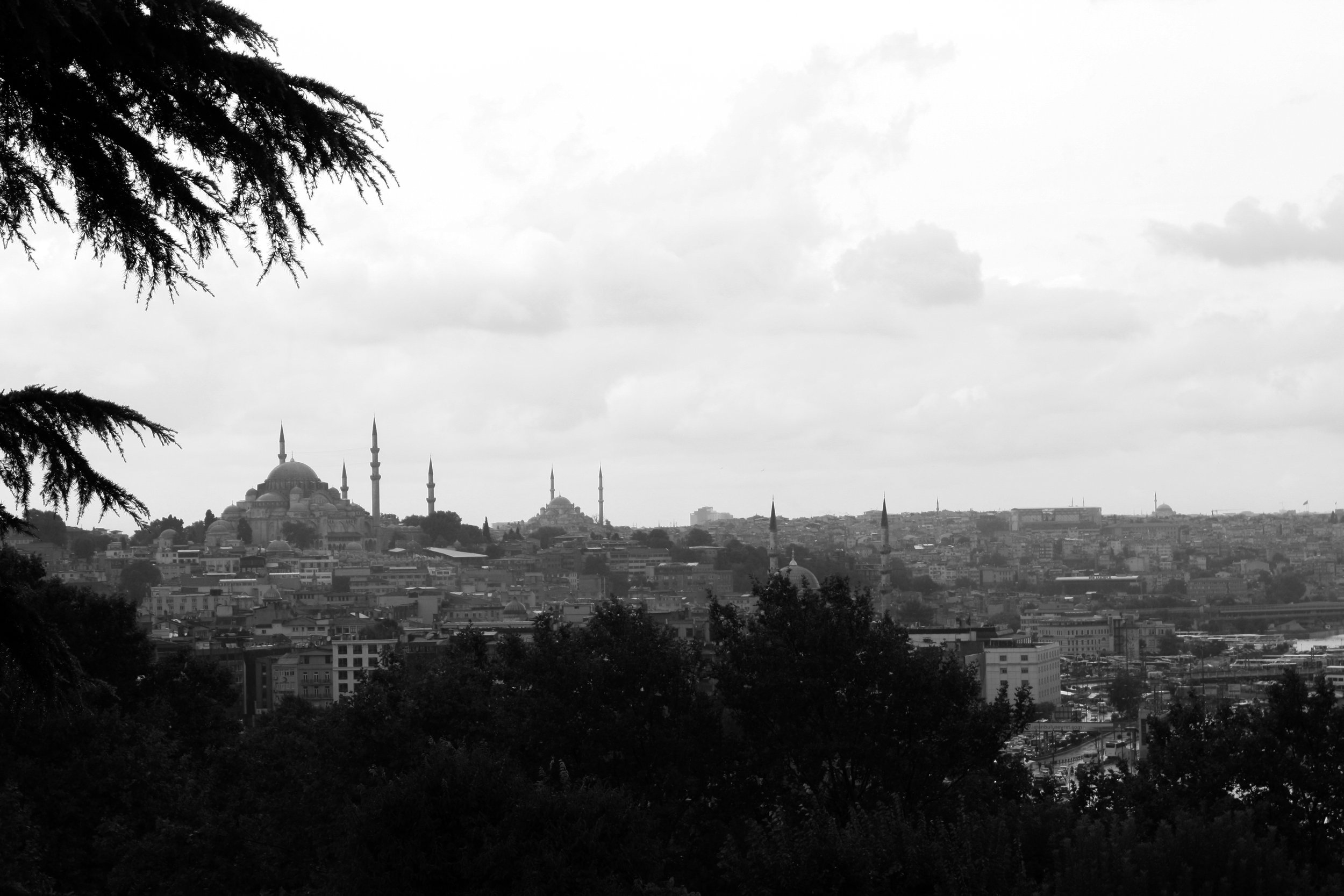Siyah: Embracing the darkness within سیہ
In the serene ambiance of a quaint Istanbul bookshop, nestled in its modest cafe, I find solace and a space for introspection. The city, a bridge between continents, cultures, and epochs, envelops me in its rich tapestry, offering a unique vantage point to reflect on a world increasingly fragmented.
Awakening this morning, a moment of profound clarity struck me. The fatigue that weighs on my soul stems not solely from personal strife but from a deeper, more pervasive disquiet. It's a malaise born from a disconnection, a spiritual drift from the oneness of Allah, and a gnawing recognition of the centuries-old wounds inflicted upon humanity and our Earth by Western institutions.
The West, with its ostentatious facade and unacknowledged fault lines, remains blissfully unaware and ignorant of its role in this global theatre of injustice. Its hysteria, a mask to cover the underlying apathy and disinterest in the plight of those beyond its immediate sphere. The recent genocide by the apartheid state of Israel against Palestinians shows this uncomfortable truth. As South Africa accuses Israel of violating the UN’s 1948 Genocide Convention and takes the case to the International Court of Justice (ICJ), the West remains conspicuously silent. This silence speaks volumes, more so as nations from the global south I call home, Turkey and Pakistan, stand with South Africa, leaving my Scottish and British identity in a complex dance of allegiance and betrayal.
Each visit to Istanbul rekindles a connection, a sense of belonging that eludes me in Scotland. It's a realization that perhaps the West, entrenched in its own turmoil, is a harbinger of imbalance, a dark force catching up with itself. A prophecy once whispered in hushed tones, suggesting that the West is not afloat but an illusion, now seems a looming reality. The illusion, once a shield, now hastens towards an inevitable destruction, creating chaos in its wake.
In this moment of introspection, amidst the tranquillity of Istanbul's embrace, I grapple with these truths. The West's silence, its complacency, is not just an external phenomenon but something that resonates within me, a by-product of the very illusion I critique. As I pen down these reflections, the realization dawns that it might already be too late to reverse the course of this impending havoc. The darkness, once a distant shadow, now looms ever closer, threatening to engulf the light we so desperately seek.
This realization is not just a personal epiphany but a clarion call for introspection and action. It's a journey towards authenticity, a challenge to the status quo, and a quest for a balance that respects both heritage and personal truth. In Edinburgh, my birthplace, each visit to my mother's home is tinged with a sense of profound betrayal. The air I breathe there, the streets I walk, echo with a dissonance that gnaws at my authenticity, questioning the price of such disconnection. How long can I dwell in this shadowed existence? Suspicion lurks deep within me, even as I stroll near Topahne Mosque, observing the faithful. Their post Friday prayer exuberance contrasts sharply with my own internal turmoil and shame, born from a lingering fear and misunderstanding of these very people. This internal conflict, this grappling with terror and indoctrination of the west, begs the question: How long, Adil, until you confront and liberate yourself from these shackles?
In the heart of Istanbul, a city that straddles worlds, I find the courage to confront these truths, to embrace the complexities of identity, and to acknowledge the darkness while steadfastly seeking the light.


